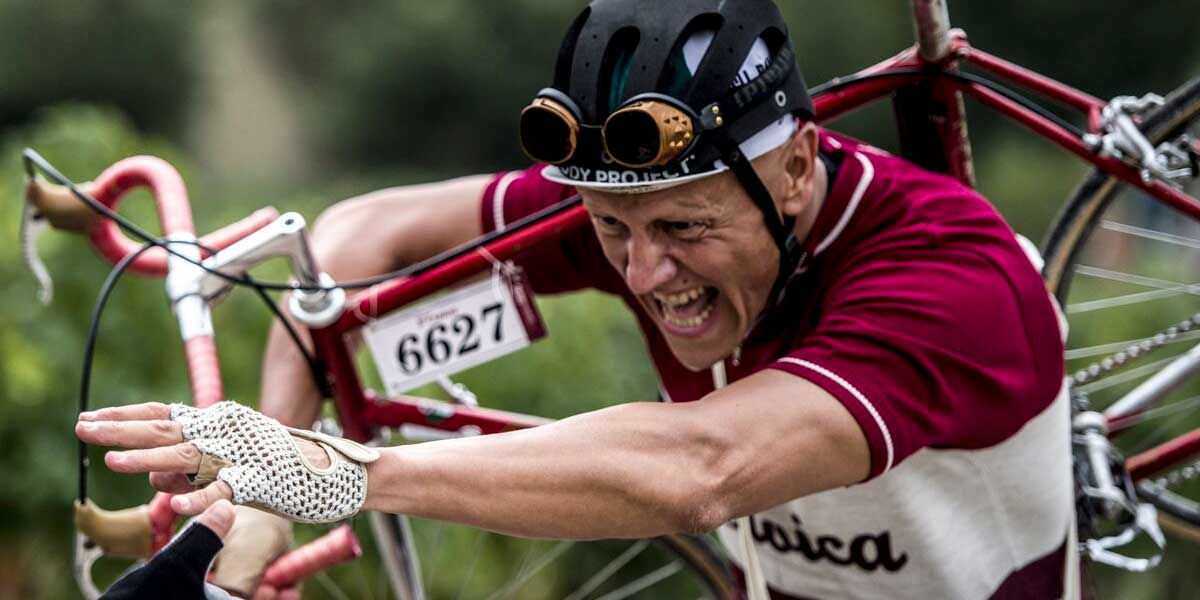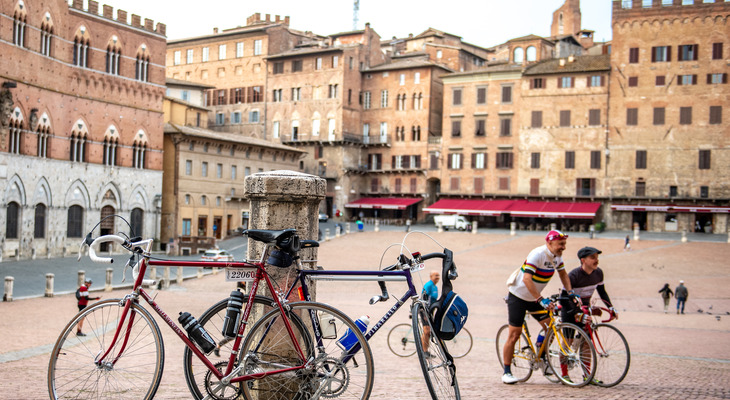Can the bicycle be considered a counter-cyclical product?
The bicycle, whether modern or vintage, traditional or electric, could be the sustainable mobility solution to the European crisis caused by the Russian-Ukrainian conflict. From the General Cycling Plan to the National Recovery and Resilience Plan (NRRP): it’s all good news, for Eroica too.
The Italian Urban and extra-urban cycling mobility plan was approved in August 2022 by the former Ministry of Infrastructure and Sustainable Mobility, now the Ministry of Transport. It aims to make cycling mobility, at all levels, a fundamental component of the sustainable transport system, featuring accessibility, efficiency and a positive environmental impact. This would highlight the use of bikes for urban and extra-urban mobility as a low-cost, widely accessible social practice.
Today, cycling offers a series of benefits, first of which is the knowledge that we are using a form of transport that is resilient to climate change, pandemics or extraordinary events that have a devastating impact on the territory. Where other forms of transport stop, whether for fuel shortages or difficult terrain, the bicycle survives, because it relies on human movement and requires limited maintenance.
Just as the bicycle is an efficient, clean, safe, silent, emission-free and healthy means of transport, it is also part of a social inclusion process that guarantees access to mobility for all.
In fact, the bike is the protagonist of mission 3 of the NRRP that has allocated 31.46 billion Euro to sustainable mobility, to guarantee investments aimed at developing a transport infrastructure that is modern, digital, sustainable and interconnected.
In addition, the bicycle market is growing. In 2021, in Europe, 21 million bikes, with an estimated value of 19.7 billion Euro were sold (7.5% more than in 2020), of which 1.97 million in Italy, with a slight decrease of 3% for traditional bikes and an increase for electric bikes (+5%), which had already grown explosively by 44% in 2020 (Ancma data).
Bicycles are generally described as counter-cyclical, allowing cost saving for those who use them as a means of transport and they are used more frequently when the economy slows down. As a result, the current global economic crisis could set off a positive wave for the bicycle market, both new and used, also activating services linked to their maintenance and repair.
L’Eroica is at the centre of this push towards sustainable mobility through the use of bicycles, orienting the choice towards second hand vintage bikes at historical cycling events such as L'Eroica in Gaiole in Chianti and Eroica Montalcino, and towards modern bikes in events linked to the NOVA Format like NOVA Eroica Buonconvento, NOVA Eroica Prosecco Hills, and NOVA Eroica Gran Sasso.
Alessandra Ortenzi

















